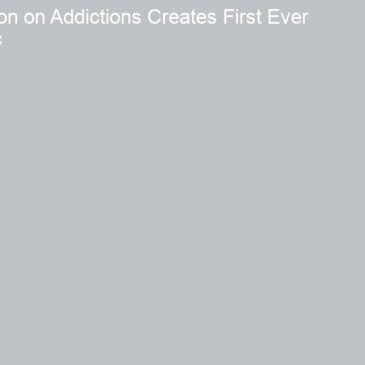The following was a featured article for the World Online Gambling Law Report Vol. 8 (3).
In a move to make addiction research more open and accessible, the Division on Addictions at the Cambridge Health Alliance, a teaching affiliate of Harvard Medical School, has created a data repository called “The Transparency Project”. This data repository allows scientists from around the world to engage in a free exchange of data from privately-funded research. Open access to information from research supported by private interests will promote evidence from this resource to take its place alongside that from government sponsored research. Ultimately, to the benefit of health providers as well as to political and legal decision-makers deciding on complex addiction-related issues, the Transparency Project will enhance confidence in scientific findings.
Politicians, judges, and regulators face difficult decisions when confronted with issues involving human behaviors, such as concerns about gambling addiction. The scientific community can offer guidance to the often heated discussion that usually surrounds matters of addiction. However, limited access to important addiction-related data could impede the amount of guidance science can provide. The newly launched ‘Transparency Project’ is the first ever publicly available data repository for privately-funded research datasets that are addiction-related (e.g., relating to gambling, alcohol, shopping, illicit drugs, etc.). It promotes transparency for privately-funded science, the exchange of quality-reviewed data, and lists publications based on the different datasets. Consequently, The Transparency Project constitutes an important dynamic source of information for scientists and stakeholders who rely on up-to-date scientific research.
There is increasing agreement that scientific information should be available broadly to both the scientific community and the general public. In the United States, for example, researchers must make publicly-funded scientific datasets freely available to others. Policy makers believe that greater access to scientific information will provide other scientists the opportunity to extend existing research and speed the process of improving the public’s health. Convinced of this belief, the Division on Addictions has created ‘The Transparency Project’, making privately-funded datasets (e.g., foundation-funded and industry-funded) openly accessible for the first time. The availability will help foster global rapid growth in knowledge related to addictive behavior and advance the process of finding answers to public health concerns.
To ensure privacy and high scientific standards, the datasets, created by addiction researchers working throughout the world, are de-identified to the level required by the US Health Insurance Portability and Accountability Act. To protect human subjects, an institutional board of review must have approved the study methods. To ensure quality, the datasets must have an associated peer-reviewed publication.
Private sources are very important for research. Private sources finance about twice the research sponsored by public sources. However, some privately-funded research has come under criticism. For example, misconduct by the tobacco industry has created an atmosphere of skepticism and mistrust related to private funding sources in general. As documented, these concerns are not unwarranted. However, the misdeeds of some should not preclude the many private sources from contributing to the advancement of science. On the contrary, because some private sources provide both opportunity and exposure to potential objects of addiction, the public expects these private sources to provide funding for high quality programs of scientific investigation. The Transparency Project expressly recognizes the need to meet these concerns and increases accessibility and scrutiny to privately-funded data.
US President Obama has called for the development of more public-private partnerships in the conduct of research activities. Under the condition that scientific independence is ensured, these partnerships hold a strong potential to advance science and public health. They also take into account scarce public resources that are under increasing pressure for allocation. As public-private partnerships emerge and further evolve, the research community must assure full transparency to protect the credibility of scientific findings. With this benchmark in mind, the Division on Additions invites the community of stakeholders to utilize The Transparency Project, participate in the development of public-private research partnerships, and advance our collective knowledge about addiction. The Transparency Project provides the opportunity to work together to alleviate the burdens caused by addictive behaviors.
Howard J. Shaffer, PhD
Debi A. LaPlante, PhD
Y. Evelyn Chao, PhD
Simon Planzer, Attorney at Law, MLaw, M.A
Richard A. LaBrie, PhD
Sarah E. Nelson, PhD
The Transparency Project: http://www.thetransparencyproject.org
For questions and to get involved: info@thetransparencyproject.org




